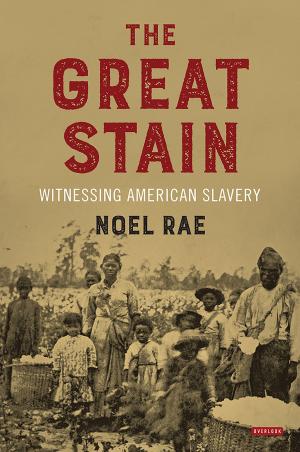Yiddishkeit
Jewish Vernacular and the New Land
Nonfiction, Reference & Language, Foreign Languages, Hebrew & Yiddish, Comics & Graphic Novels, Social & Cultural Studies, Social Science| Author: | David Lasky | ISBN: | 9781613122280 |
| Publisher: | ABRAMS | Publication: | April 15, 2012 |
| Imprint: | Abrams ComicArts | Language: | English |
| Author: | David Lasky |
| ISBN: | 9781613122280 |
| Publisher: | ABRAMS |
| Publication: | April 15, 2012 |
| Imprint: | Abrams ComicArts |
| Language: | English |
Yiddish is everywhere. We hear words like nosh, schlep, and schmutz all the time, but how did these words come to pepper American English? In Yiddishkeit: Jewish Vernacular and the New Land, Harvey Pekar and Paul Buhle trace the influence of Yiddish from medieval Europe to the tenements of New York’s Lower East Side. This comics anthology contains original stories by notable writers and artists such as Barry Deutsch, Peter Kuper, Spain Rodriguez, and Sharon Rudahl. Through illustrations, comics art, and a full-length play, four major themes are explored: culture, performance, assimilation, and the revival of the language. The last fully realized work by Harvey Pekar, this book is a thoughtful compilation that reveals the far-reaching influences of Yiddish.
Praise for Yiddishkeit:
“The book is about what Neal Gabler in his introduction labels ‘Jewish sensibility.’ It pervades this volume, which he acknowledges is messy; he writes: ‘You really can't define Yiddishkeit neatly in words or pictures. You sort of have to feel it by wading into it.’ The book does this with gusto.” —New York Times
“Yiddishkeit is as colorful, bawdy, and charming as the culture it seeks to represent.”
—Print magazine
“every bit of it brimming with the charm and flavor of its subject and seamlessly meshing with the text to create a genuinely compelling, scholarly comics experience”
**—**Publishers Weekly
“Yiddishkeit is a book that truly informs about Jewish culture and, in the process, challenges readers to pick apart their own vocabulary.” —Chicago Tribune
“a postvernacular tour de force”
—The Forward
“A fascinating and enlightening effort that takes full use of the graphic storytelling medium in an insightful and revelatory way.” *—*The Miami Herald
“With a loving eye Pekar and Buhle extract moments and personalities from Yiddish history.” —Hadassah
“gorgeous comix-style portraits of Yiddish writers”
––Tablet
“Yiddishkeit has managed to survive, if just barely, not because there are individuals dedicated to its survival, though there are, but because Yiddishkeit is an essential part of both the Jewish and the human experience.”
—Neal Gabler, author of An Empire of Their Own: How the Jews Invented Hollywood, from his introduction
"The hearty hardcover is a scrumptious smorgasbord of comics, essays, and illustrations, edited by Harvey Pekar and Paul Buhle, providing concentrated tastes, with historical context, of Yiddish theater, literature, characters and culture." —Heeb magazine
Yiddish is everywhere. We hear words like nosh, schlep, and schmutz all the time, but how did these words come to pepper American English? In Yiddishkeit: Jewish Vernacular and the New Land, Harvey Pekar and Paul Buhle trace the influence of Yiddish from medieval Europe to the tenements of New York’s Lower East Side. This comics anthology contains original stories by notable writers and artists such as Barry Deutsch, Peter Kuper, Spain Rodriguez, and Sharon Rudahl. Through illustrations, comics art, and a full-length play, four major themes are explored: culture, performance, assimilation, and the revival of the language. The last fully realized work by Harvey Pekar, this book is a thoughtful compilation that reveals the far-reaching influences of Yiddish.
Praise for Yiddishkeit:
“The book is about what Neal Gabler in his introduction labels ‘Jewish sensibility.’ It pervades this volume, which he acknowledges is messy; he writes: ‘You really can't define Yiddishkeit neatly in words or pictures. You sort of have to feel it by wading into it.’ The book does this with gusto.” —New York Times
“Yiddishkeit is as colorful, bawdy, and charming as the culture it seeks to represent.”
—Print magazine
“every bit of it brimming with the charm and flavor of its subject and seamlessly meshing with the text to create a genuinely compelling, scholarly comics experience”
**—**Publishers Weekly
“Yiddishkeit is a book that truly informs about Jewish culture and, in the process, challenges readers to pick apart their own vocabulary.” —Chicago Tribune
“a postvernacular tour de force”
—The Forward
“A fascinating and enlightening effort that takes full use of the graphic storytelling medium in an insightful and revelatory way.” *—*The Miami Herald
“With a loving eye Pekar and Buhle extract moments and personalities from Yiddish history.” —Hadassah
“gorgeous comix-style portraits of Yiddish writers”
––Tablet
“Yiddishkeit has managed to survive, if just barely, not because there are individuals dedicated to its survival, though there are, but because Yiddishkeit is an essential part of both the Jewish and the human experience.”
—Neal Gabler, author of An Empire of Their Own: How the Jews Invented Hollywood, from his introduction
"The hearty hardcover is a scrumptious smorgasbord of comics, essays, and illustrations, edited by Harvey Pekar and Paul Buhle, providing concentrated tastes, with historical context, of Yiddish theater, literature, characters and culture." —Heeb magazine















